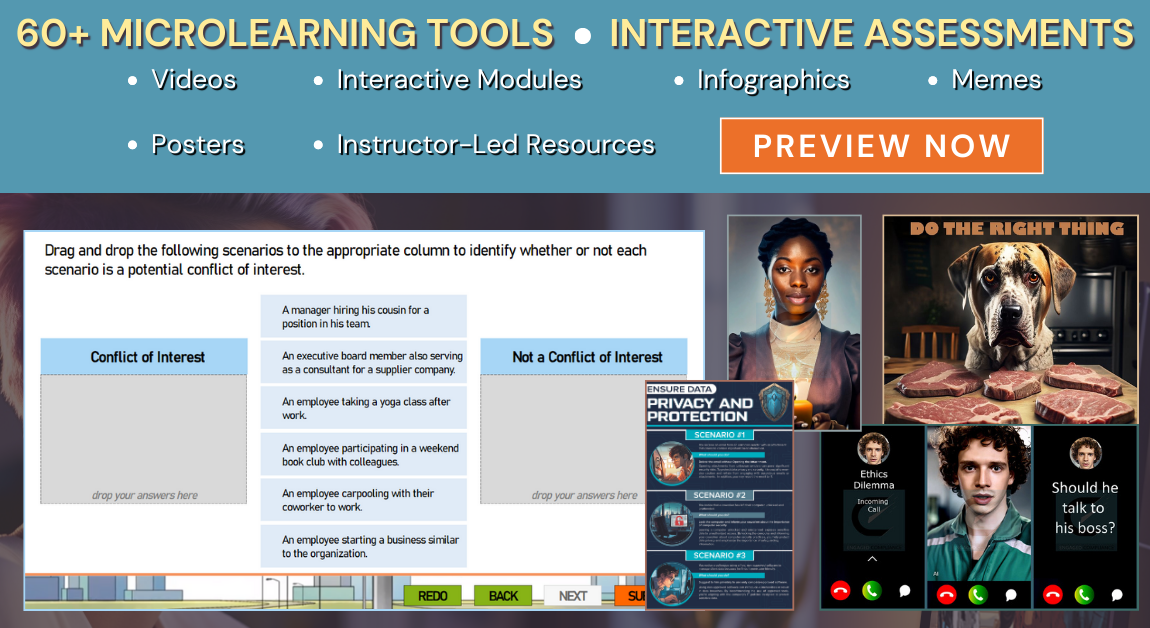As we ring in the New Year, many of us are currently engaging in a time-honored tradition – setting New Year’s resolutions. These resolutions often reflect our desire for self-improvement, be it in health, habits, or personal goals, and often change each year depending on circumstances present in our current life.
Interestingly, this practice mirrors another essential process in the professional sphere: compliance training. Both involve setting standards and striving to adhere to them, despite various challenges (both expected and unexpected). By understanding the psychology behind New Year’s resolutions – and effective strategies for achieving them – we can also gain valuable insights for effectively implementing and maintaining ethical practices in the workplace through compliance training.
The Psychology of Resolutions and Compliance
When individuals set New Year’s resolutions, they’re essentially committing to a set of self-imposed rules or goals. This is akin to employees adhering to compliance and ethical standards in an organization. However, just as personal resolutions often face roadblocks (like a tempting birthday cake derailing a new diet), employees may encounter situations that challenge their commitment to compliance.
Common Challenges in Maintaining Commitments
- Temptation and Immediate Gratification: Just as it’s hard to resist a slice of birthday cake, employees might find shortcuts more appealing than following protocols.
- Lack of Motivation or Understanding: Sometimes, the purpose behind a resolution or a compliance policy isn’t fully clear, leading to disengagement.
- External Pressure: Peer pressure can sway personal and professional choices, be it skipping a gym session or cutting corners at work.
Strategies for Encouraging Ethical Choices
- Clear Communication: Just as a well-defined resolution is more likely to be followed, clear and concise communication of compliance policies is crucial. Ensure that employees understand not just the ‘what’, but the ‘why’ behind each policy.
- Realistic Goal Setting: Set achievable compliance goals. Overly ambitious resolutions can lead to early burnout, much like impractical compliance expectations.
- Regular Check-ins and Support: Offer regular training sessions through microlearning, much like regular weigh-ins during a diet plan. This keeps the goals fresh in the mind and provides an opportunity for guidance and support.
- Positive Reinforcement: Celebrate compliance milestones in the workplace. Acknowledgment of effort and achievement can be a powerful motivator, just as it is in personal resolutions.
- Creating a Culture of Integrity: Foster an environment where ethical behavior is the norm. Just as a supportive community helps in keeping resolutions, a positive workplace culture encourages adherence to compliance standards.
By recognizing the challenges of maintaining ethical decision-making and employing strategic measures to address it, the effectiveness of any compliance program can be significantly enhanced. Remember: the goal is not just to set rules but to cultivate an environment where ethical choices become second nature, just like our New Year’s resolutions.
____________________________________________________________________________________________________________________________
